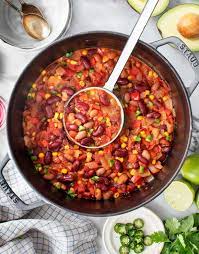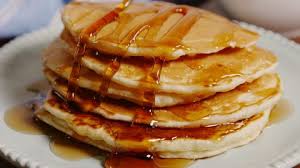1974
A GOOD BREAKFAST
Many times when I have been having breakfast at a restaurant I have noticed that there are a great number of men who eat very little for the first meal of the day. Listening to them talk and discuss their ailments make me wonder what has happened to appetites. Then, so many men, some of them not very old, seem to be taking all sorts of pills to aid their digestion. Times I get to thinking about the breakfasts men working in the lumber woods used to eat. Now these men were doing heavy manual work, and needed plenty to eat. When I first went into the woods we worked six days a week, and when the log haul was on there were many days much longer than the usual ten hours. So, to keep strong they had to eat. And they did. Camp cooks had to supply good food or the men would not stay. Good camp foremen knew that to keep a good gang they had to have plenty of well-cooked food, and many camps were rated by the cook, whether good or bad, more often than by the work that was expected. Wouldn’t it be interesting to watch some of these men who go to work on a cup of coffee or a glass of juice, to be sat down to a meal like the old-time lumberjacks used to eat?
But when I think of breakfast I usually get around to remembering some of the people I have gone on fishing trips with. Some of these men, professional and businessmen alike, can stow away quite a bit of grub when they get out in the woods. And they seemed to survive.
But for breakfasts I would have to give top billing to a young Algonquin from Golden Lake. This fellow was about my age, and we had a number of good trips as the guides. In the several years we were working together, we never even had a slight quarrel. After a couple of trips trying to keep up to him on the portage, I finally had to admit he could carry a larger load than I could, and quit trying to beat him. I could go a bit faster in a canoe if the load was light, but when we had heavy loads, he was better. He disliked cooking, which chore I liked. I did not like putting up tents and cutting brush for the beds, but he did all this as long as I would look after the meals. There were lots of fish, and that was no problem. Campers then did not have the supplies that are taken along now, as they were not available. Too, when there was a lot of portaging, it was best to carry as few cans as possible. Very little meat was carried, as fresh meat would not keep, and there was not the variety of canned meat there is today. Fish twice a day, and no one seemed to tire of it. Breakfasts were one meal fish was seldom eaten. Cooked cereal, and on alternate mornings, pancakes. Which brings us along to what I will always think of as a very unusual breakfast.
This after the fishermen had been fed. Bill (that was his name) would slice perhaps six nice thick slices of bacon, which seemed to be in larger sides than we get today. This would be fried, but to most it would appear to be only about half-cooked. A pancake, perhaps ten or twelve inches across, was placed on a plate, while another pancake was cooked. Then three or four large onions would be sliced and carefully placed on the pancake. Then the next pancake was placed on top of the onions, an another put in the pan. The bacon was put on the second pancake, completely covering it, and the third pancake put on top of that. Then the bacon fat from the bacon was poured over the top of it all, and this was his breakfast, along with three or four cups of coffee. He never seemed to have any difficulty eating it all, and never any after-effects. Now he did a lot of work, and this meal only lasted until noon, when there would likely be fish and beans, the standard noon-day meal. The evening meal would be more fish with potatoes, and perhaps another vegetable. The potatoes were usually the dehydrated kind (invented in Canada for your information (FYI)), but tasty and very filling.

I never did get around to trying one of his breakfasts. The three pancakes would mean if they were made the regular small size, he would be eating fifteen or sixteen pancakes. The bacon, about the usual amount fed to three men, and then the three or four onions. It was quite a meal to start the day with.
One winter I trapped with a friend. We ran out of supplies, or most of them, in a new bit of country and felt we should stay. Our breakfasts for a few days was oatmeal porridge without milk or sugar, lunch was a big leg of beaver, and for the evening meal we had a small piece of bannock with a small helping of beans and more beaver. But we got along for almost a week, and did a lot of travelling.
So that is why it seems odd at times to see men eating so little, and others finding fault at what is offered. But, when you are working hard and get hungry, any sort of food makes for a good meal.
When guiding in the Temagami area out of Lady Evelyn we used to toast bread in bacon fat to ease the pain of a sore throat. Little did we know! Barney
